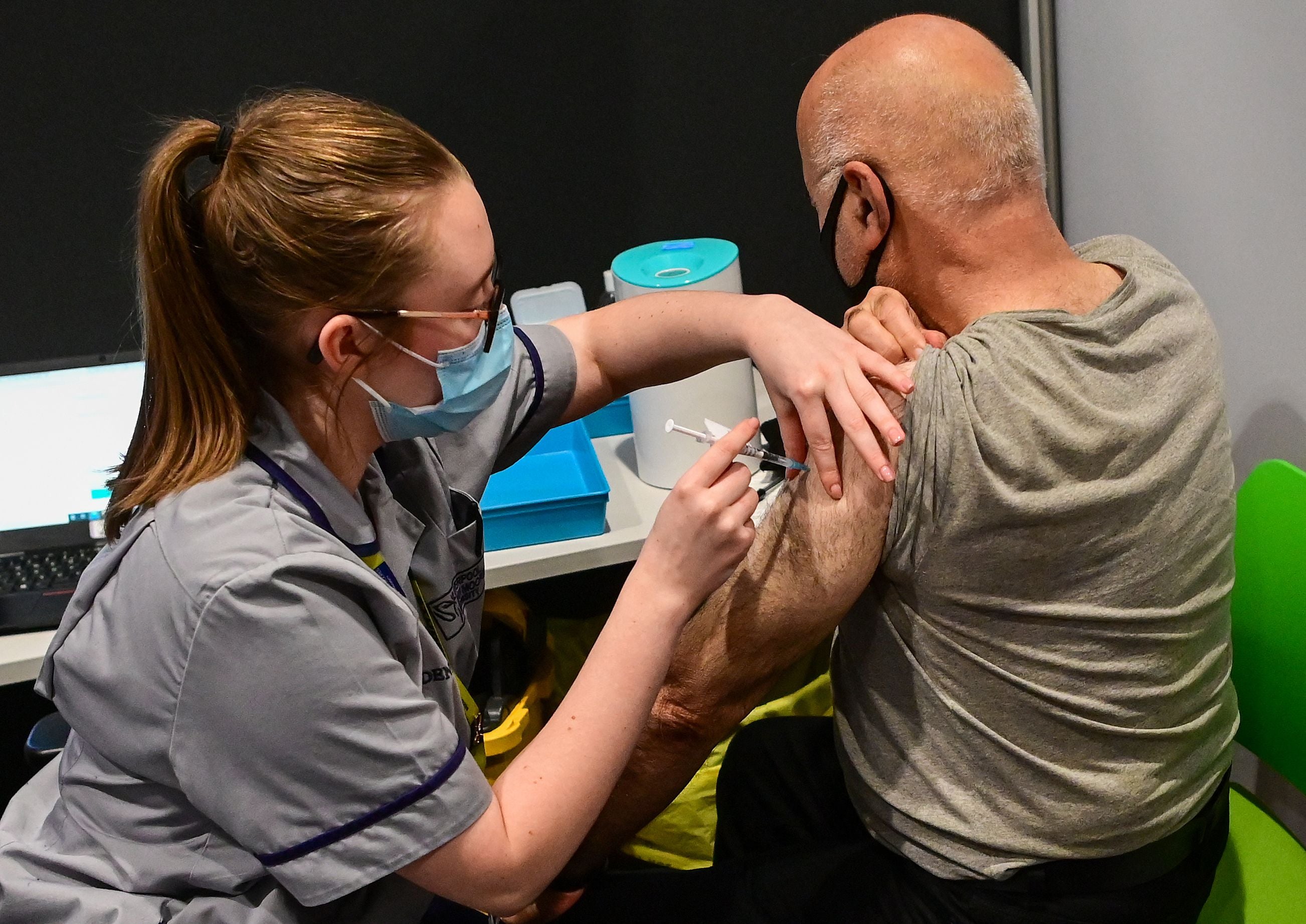Councils given £28m to help vaccinate and house people sleeping rough during Omicron wave
The spread of Omicron is reducing the number of emergency shelters, charities have warned

Your support helps us to tell the story
From reproductive rights to climate change to Big Tech, The Independent is on the ground when the story is developing. Whether it's investigating the financials of Elon Musk's pro-Trump PAC or producing our latest documentary, 'The A Word', which shines a light on the American women fighting for reproductive rights, we know how important it is to parse out the facts from the messaging.
At such a critical moment in US history, we need reporters on the ground. Your donation allows us to keep sending journalists to speak to both sides of the story.
The Independent is trusted by Americans across the entire political spectrum. And unlike many other quality news outlets, we choose not to lock Americans out of our reporting and analysis with paywalls. We believe quality journalism should be available to everyone, paid for by those who can afford it.
Your support makes all the difference.People sleeping rough will be helped into accommodation and offered access to Covid-19 vaccines in a push to curb the spread of the Omicron variant, the government has announced.
The Protect and Vaccinate Scheme will see £28 million be given to councils to address vaccine hesitancy among homeless people and rough sleepers.
The scheme will deliver mobile vaccinations where people are rough sleeping and give money to councils to provide accommodation as their level of vaccination is increased, in addition to working in shelters to educate people about the dangers of the virus.
The government introduced the Everyone In scheme at the start of the pandemic in March 2020 and protected 37,000 rough sleepers in hotels and emergency accommodation.
Homelessness charity, Shelter, welcomed the funding but insisted that permanent social housing is needed to address rough sleeping.
“With Omicron ripping through the country, the £28 million boost in funds to make sure people sleeping rough can get vaccinated will help to protect people in some of the most vulnerable situations from this virus. But our services are already being approached by people in need of emergency accommodation, who are being turned away by overstretched councils,” Shelter CEO, Polly Neate said.
She added: “At the crux of this crisis - and the reason why councils can’t prevent homelessness - is a lack of social housing. To end homelessness for good, we need to build secure homes that people can actually afford.”
London charity Glassdoor warned that homeless people could be left on the streets this winter due to shelters closing amid the spread of the Omicron variant. Charity Housing Justice warned that emergency spaces were down by about half compared to pre-pandemic levels.
The funding has also been welcomed by Rick Henderson, CEO of Homeless Link, the national membership charity for frontline homelessness groups. He said Homeless Link’s 900 member organisations are working with local authorities across England to increase vaccinations.
“When people are rough sleeping they are extremely vulnerable to infection. In the first waves of the pandemic the Everyone In initiative saved lives,” said Mr Henderson. “Covid-19 was responsible for the deaths of less than 2 per cent of people experiencing homelessness during 2020 as opposed to 12 per cent of the general population which showed that assertive action worked.
“We also know that people facing homelessness are much less likely to be vaccinated than people in the general population. Many are not registered with GPs and don’t have access to mobile phones. Bringing people into accommodation will increase the uptake of vaccinations.”
Join our commenting forum
Join thought-provoking conversations, follow other Independent readers and see their replies
Comments